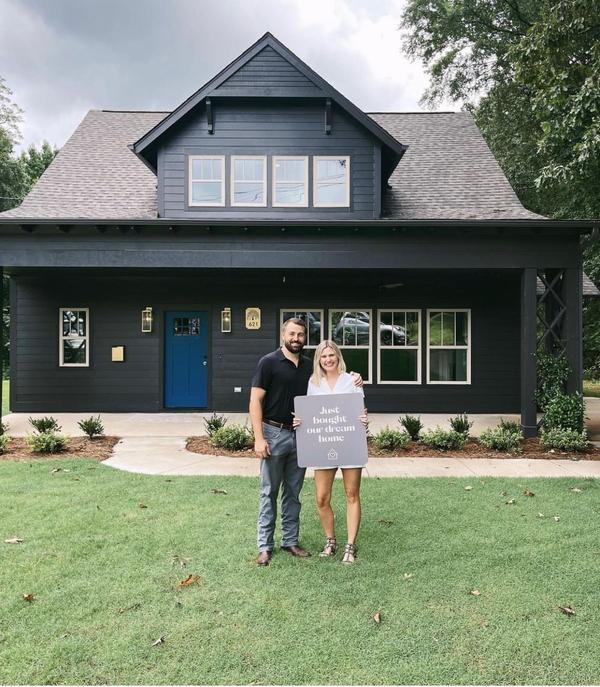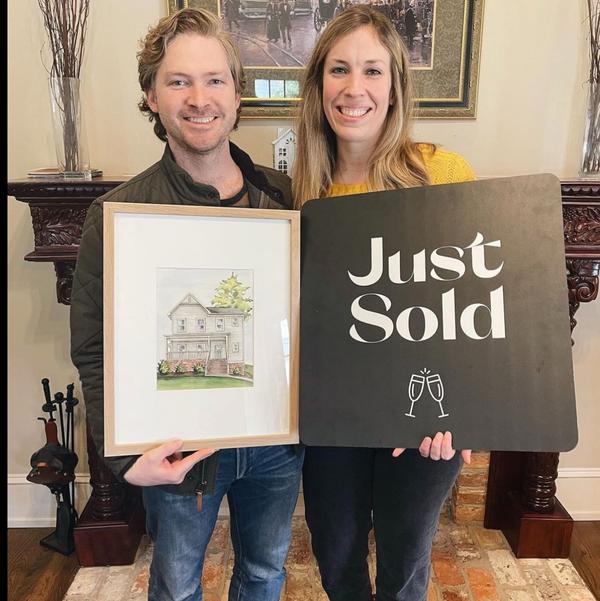How Does Commission Work in the Home Buying and Selling Process?
Here are answers to some frequently asked questions (FAQs) about selling a home:
1. What is the first step in selling a home?
The first step is to hire a local, experienced real estate agent – Hey! That’s US! They can help you determine the value of your home, market the property, and guide you through the selling process. It's also helpful to declutter, clean, and make any necessary repairs before listing.
2. How do I determine the selling price of my home?
A real estate agent can conduct a Comparative Market Analysis (CMA), which compares your home to similar properties that have recently sold in your area. Pricing is based on location, size, condition, and market trends. Overpricing can cause your home to sit on the market, while underpricing may lead to a quick sale but for less than the home’s worth.
3. How long will it take to sell my home?
The time it takes to sell depends on several factors, including the current market conditions, your home’s condition, and its price. In a hot market, homes may sell in days or weeks. In a slower market, it may take several months. A typical timeline might be 30 to 60 days from listing to closing.
4. What are closing costs, and how much will I have to pay?
Sellers can pay between 3-6% of the home's sale price in closing costs, which may include real estate agent commission for the listing agent (and depending on negotiations & agreements it may include the buyer’s agents commission), title insurance, and transfer taxes. Depending on local regulations, you may also need to cover other fees like escrow fees, attorney fees, or repairs requested by the buyer.
5. Do I need to make repairs before selling?
It's a good idea to fix obvious problems like leaky faucets, damaged walls, leaky roofs, broken HVAC systems or appliances to make the home more appealing to buyers. Some sellers invest in bigger updates like painting or landscaping to improve curb appeal. However, major renovations aren't always necessary unless they significantly impact the home’s value, which is unlikely.
6. What is staging, and should I do it?
Staging involves arranging furniture and decor in a way that highlights the best features of your home and makes it more attractive to buyers. Staged homes often sell faster and for higher prices. You can hire a professional stager or do it yourself by decluttering, depersonalizing, and maximizing the space. Your real estate agent is able to help you with this or provide necessary connections with professional stagers.
7. What is the best time of year to sell a home?
Spring and summer are generally considered the best times to sell, as the weather is nicer, and families are looking to move before the new school year starts. However, homes can sell in any season, and the right time to sell depends on local market conditions.
8. How do I handle offers on my home?
When you receive an offer, you can accept it, reject it, or submit a counteroffer. Your agent will help you evaluate offers based on the buyer’s qualifications, price, contingencies, and closing timeline. If you receive multiple offers, your agent may help you choose the best one or negotiate for higher offers.
9. What is a contingency in a home sale?
A contingency is a condition that must be met before the sale can proceed. Common contingencies include the buyer securing financing, completing a home inspection, and selling their current home. If a contingency is not met, the buyer may walk away from the deal.
10. How do I handle a home inspection?
After accepting an offer, the buyer will usually schedule a home inspection. The inspector will assess the condition of your home, looking for issues like structural damage, plumbing problems, or faulty wiring. Based on the inspection results, the buyer may request repairs or a price reduction, which you can negotiate.
11. What happens if my home doesn’t appraise for the agreed sale price?
If the home appraisal comes in lower than the agreed sale price, the buyer’s lender may not approve the full loan amount. In this case, you can lower the sale price, ask the buyer to pay the difference, or negotiate a compromise. If no agree is made, the sale may fall through.
12. Do I have to pay capital gains tax when selling my home?
You may owe capital gains tax if you sell your home for more than you paid, but there are exclusions. For primary residences, individuals can exclude up to $250,000 in profit, and married couples can exclude up to $500,000, as long as you’ve lived in the home for at least two of the last five years.
13. Can I sell my home if I still owe on the mortgage?
Yes, you can sell your home even if you haven’t paid off the mortgage. The proceeds from the sale will go toward paying off the remaining balance of your mortgage.
14. Should I sell my home before buying a new one?
It depends on your financial situation. Selling first can provide a clearer budget for your next home and prevent you from juggling two mortgages. However, buying first ensures you won’t be left without a home.
15. What happens at closing?
At closing, all parties (buyer, seller, agents, lenders, and attorneys) finalize the sale. You’ll sign paperwork, pay closing costs, and transfer the deed to the buyer. Once everything is signed, the funds are transferred to you, and the sale is complete and you turn over the keys!
16. How can I make my home more appealing to buyers?
Simple updates like fresh paint, good lighting, decluttering, and curb appeal can make a big difference. It’s important to create a space where buyers can envision themselves living, so remove personal items like family photos and clean thoroughly before showings. If you have pets, its best to keep them out of sight or away from the home during showings.
17. What happens if I get multiple offers on my home?
If you receive multiple offers, you can accept the best one, counter the highest offer, or ask for “highest and best” offers from all interested parties. Your real estate agent will help you assess the strength of each offer, considering factors like the buyer’s financing, contingencies, and closing timeline.





